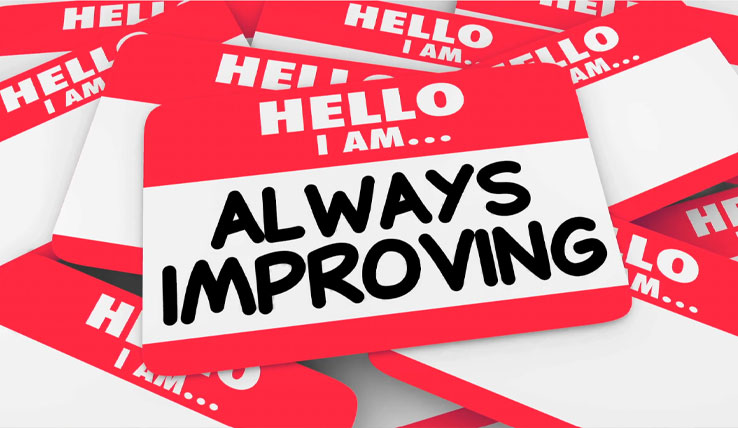
Does Accepting Yourself Mean Settling? Here’s the Truth
At first glance, self-acceptance seems to contradict personal growth. You might think:
- "If I accept myself, I'll stop striving to improve."
- "Self-acceptance is for people who've given up."
But here’s the reality: self-acceptance isn’t about approving of every flaw or being satisfied with mediocrity. It’s about being honest with yourself and letting go of the judgment that keeps you stuck.
This mindset shift creates the emotional space you need to take bold steps forward.
How Self-Acceptance Boosts Success: Insights from Psychology
Research shows that self-acceptance isn’t just a feel-good idea—it’s a powerful tool for growth. Here’s what science says:
Self-Compassion Motivates Real Change
Dr. Kristin Neff, a leading researcher on self-compassion, found that people who accept themselves with kindness are more likely to take personal responsibility and improve.
Why This Works: Self-compassion reduces the fear of failure, helping you bounce back from setbacks and persist toward your goals.
Reference: Neff, K. D. (2011). Self-Compassion: The Proven Power of Being Kind to Yourself.
Acceptance Reduces Emotional Resistance
A study in the Journal of Counseling Psychology revealed that accepting your flaws helps you manage them more effectively, improving your overall well-being.
Why This Works: Acceptance removes the emotional roadblocks that come with self-denial or avoidance, making growth possible.
Reference: Hayes, S. C., et al. (2006). Acceptance and Commitment Therapy: An Experiential Approach to Behavior Change.
Resilience Improves Through Self-Acceptance
Research in resilience psychology shows that self-acceptance enhances emotional resilience, allowing you to recover more quickly from challenges.
Why This Works: Letting go of perfectionism frees up mental energy to focus on problem-solving and opportunities.
Reference: Tugade, M. M., & Fredrickson, B. L. (2004).Resilient Individuals Use Positive Emotions to Bounce Back from Negative Emotional Experiences.
Self-Acceptance Fuels Long-Term Growth
Maslow’s hierarchy of needs highlights the importance of self-acceptance in reaching your full potential. It’s the foundation for self-esteem, which drives self-actualization.
Why This Works: Without self-acceptance, feelings of inadequacy undermine your efforts to achieve higher goals.
Reference: Maslow, A. H. (1943). A Theory of Human Motivation.
How to Accept Yourself Without Feeling Like You’re Settling
Self-acceptance doesn’t mean you’re stuck. Instead, it’s the first step to breaking free from self-doubt and moving forward with confidence. Here’s how to start:
- Separate Your Actions From Your Value. Mistakes don't define your worth. For example, if you made a mistake at work, remind yourself it doesn't reflect your overall competence. Accept yourself as a person, even while working to improve your choices.
- Accept The Present Moment. Accepting where you are today doesn't mean you'll stay here forever. It's just your starting point. Focus on the things you have accomplished that got you this far. Notice your good characteristics and skills. When you focus on what you can do, you create momentum for future growth.
- Practice Self-Compassion. Replace harsh self-criticism with kindness and understanding. For instance, if you didn't meet a personal goal, consider what you've learned and how you can try again. You're human, and imperfections are part of the journey. Failing is a step in achieving.
The Surprising Truth: Self-Acceptance Leads to Better Results
Accepting yourself as you are right now doesn’t mean giving up on your dreams. It’s about clearing the path to achieve them. When you stop wasting energy on self-criticism, you create space for real progress.
Think of it this way: Do you love your children less when they fall short of their goals? Of course not. You encourage them, love them, and believe in their potential. Now, imagine turning that same lens of unconditional love toward yourself.
When you can fully accept and love yourself as you are, you unlock the neuro pathways to progress and achievement. Loving yourself unconditionally frees your mind to focus on growth and allows you to move forward without the weight of self-doubt.
The bottom line? You can love yourself today while building a better tomorrow. Love yourself. You’re worth it.
Ready to Take the Next Step in Your Journey?
For more insights on personal growth and self-acceptance, tune in to Stable Parenting Podcast.


I'm Shane Jacob, Head Coach at The Stable Living Coaching.
Each week I release a free video message with tips on creating and maintaining healthy parent/child relationships. I call my weekly video - "You Are Destined For Greatness" because I have full faith that you my friend, were born to be extraordinary!
So sign up, kick back, and get ready to wrangle some wisdom!
Sign up for
You Are Destined For Greatness here
The Country Code for Stable Parenting:
Print it. Frame it. Live It. Love It.
Live by the Country Code. It’s time to Thrive!




